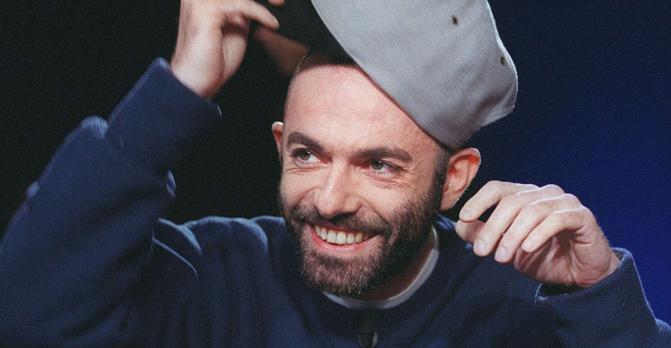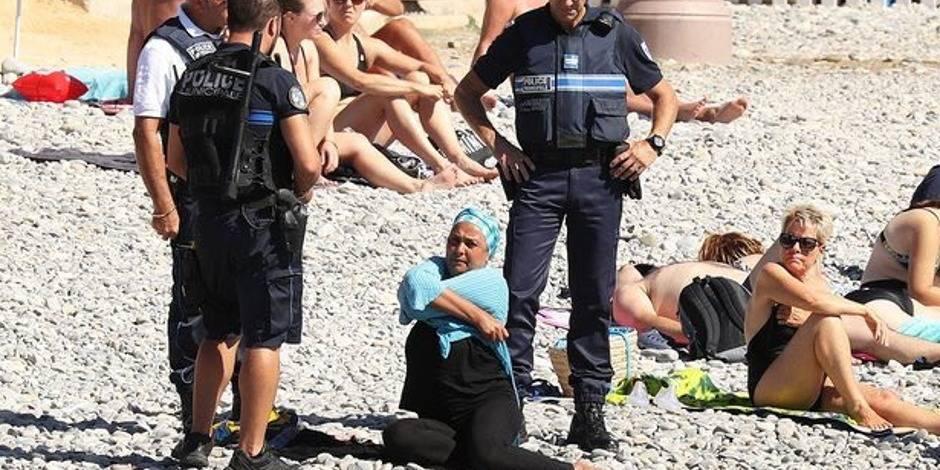Guillaume Dustan, the sulphurous ghost that continues to haunt literature
Guillaume Dustan was HIV positive. Living with a virus was something he knew. This is even what made him famous at the end of the 1990s. Those who have not read him remember at least his appearances on television on Saturday evenings in "Everyone talks about it" by Thierry Ardisson where, wearing a wig, he claimed the practice of bareback – fucking without a condom in the gay world. “Many are content not to read a writer, but to hear about him,” observes the writer Thomas Clerc, who directed and prefaced the reissue of his complete works at POL. But those who had read it knew its value, beyond the scandal and the fashion effect.
In 2013, when the first volume was published, Virginie Despentes published a letter to her deceased friend in Le Monde: "For a few years, I have been reading your books. It is a surprise. So like that, are you the best of us? And by far. You encapsulated the 90's. This France of the end of the last century, the Paris of the night, the state of mind, the objects, the habits – it goes back from between your pages. Everything is there. Bad mood, consumerism that we thought was cool, techno, chain pleasures, Madonna, Minitel, ecstasy, obsession with clothes, identity politics, white liquors and pharmacopoeia. At the time, we were unable to detect its incredible modernity. His books seem to announce the future, but a future that must still be dreamed of because, as Thomas Clerc writes, "GD is fundamentally a utopian, in line with Rousseau, Fourier, Wilhelm Reich and Monique Wittig, for whom the question passions is the central question of society and its organization. Thinking about the affairs of the city, Dustan always did. His environment, his very training (Éna), have always led him there. “Enarque and HIV-positive”, before that of “sulphurous writer”, was the label that was stuck on him.
At the time, he was not yet Guillaume Dustan, but William Baranès, his civil status name. Everyone predicts a great future for him. He has always been brilliant and has shown undeniable ease in the dissertation, this so French specialty where you have to excel to pass the entrance exams to the Grandes Ecoles. At 15, he was awarded first place in the general French and English competition. William likes to write, William knows how to write. Rhetoric is his most formidable weapon. No one then doubts his entrance to Normale sup : it was his, if only he had heard his alarm clock and arrived in time for the history test. The night had already decided his fate.

Like Emmanuel Macron, he went through a preparatory class at the Lycée Henri-IV and Sciences Po, and it was after this failure at Normale that he took his revenge by joining Éna. He is a pure product of the elite: psychoanalyst father of Sephardic origin, interior designer mother of Ashkenazi origin, he grew up in the 9th arrondissement of Paris. His grandparents are assimilated Jews from Tunisia, Poland and Germany. From childhood and into his young adult life (roughly before he frequented the gay world), he showed a fascination with etiquette, propriety and high society. Sonia Kronlund, producer of the program "Les Pieds sur terre" on France Culture, knew him in his high school years and remembers his passion for heraldry, his receptions where cocktails were served with white gloves and even of his story with Franck de Lapersonne with whom he got drunk on champagne. On this improbable relationship, the actor, discovered in “Sexy Zap”, the erotic-comic series of the 1990s by M6, then worked for the National Front, did not want to answer us despite our reminders – it seems that Dustan is staying for some more infrequent than the extreme right. Dustan, however, has some rather tender words about him in Nicolas Pages (Balland, 1999): "Ex mine, since become a boulevard actor. Protected me a lot in a difficult time (1984-1985). "Even if he tells, moreover, this anecdote about a gay sauna: "I went straight there. Paid by credit card. Like every time I do this, I thought of Franck who always paid in cash in queer places so that there were no traces. He wanted to do politics. »
The questioning of power and authority is at the heart of Dustan's thinking; the relationship with the father is central to it. "He adored her," his mother told us. And he wanted to be loved, confide many relatives. He repeats around him, during his years at Sciences Po, that it is to please his father that he studies there. At the same time, he is preparing a degree in philosophy at the Sorbonne. It was there that he met Marie-Anne Frison-Roche, who had become an eminent law professor who seemed to have come straight out of an Éric Rohmer film. She underlines how easy studying was for him: "He wanted to impress his father with Éna. This is the perfect opportunity, the ultimate source of pride. The years he spent there, 1989-1991, were the end of a world, the beginning of a new one. It was not just the Berlin Wall that fell then; the victims of AIDS too, one by one. 1989 is the year Act-Up Paris was created.








